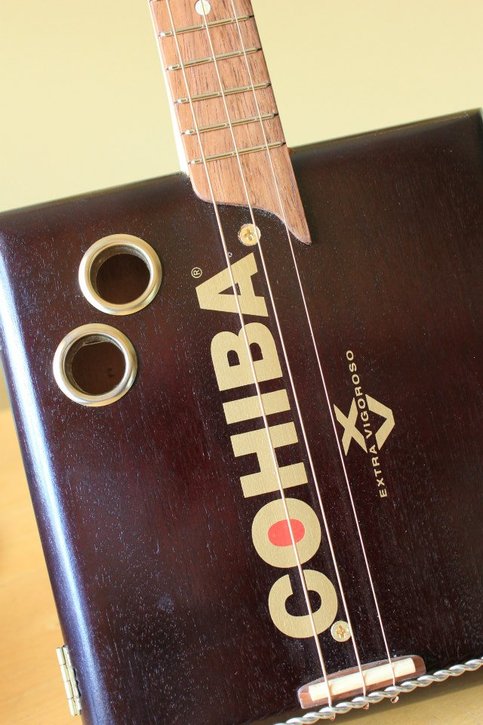In early August, I started a series on David Barton’s Capitol Tour. That was August 6 (Jefferson and the Kaskaskia Indians). On August 7, WORLD broke the David Barton controversy story with NPR’s coverage coming the next day. Today, I want to get back to the Capitol Tour with a post on a topic which has been frequently examined — Congress and the Aitken Bible. On the Capitol Tour YouTube video at 42 seconds in, Barton begins his claims about the Aitken Bible. Watch:
First, I will give Barton’s claim followed by the facts. During the tour, Barton said:
This is a copy of what the first Bible printed in English in America looked like. This Bible was printed by the U.S. Congress in 1782.
Not true. Robert Aiken printed that Bible. Here is his petition to Congress about the Bible.*
To the Honourable The Congress of the United States of America
The Memorial of Robert Aitken of the City of Philadelphia Printer Humbly Sheweth
That in every well regulated Government in Christendom The Sacred Books of the Old and New Testament, commonly called the Holy Bible, are printed and published under the Authority of the Sovereign Powers, in order to prevent the fatal confusion that would arise, and the alarming Injuries the Christian Faith might suffer from the spurious and erroneous Editions of Divine Revelation. That your Memorialist has no doubt but this work is an Object worthy the attention of the Congress of the United States of America, who will not neglect spiritual security, while they are virtuously contending for temporal blessings.
Under this persuasion your Memorialist begs leave to inform your Honours That he both begun and made considerable progress in a neat Edition of the Holy Scriptures for the use of schools, But being cautious of suffering his copy of the Bible to Issue forth without the sanction of Congress, Humbly prays that your Honors would take this important matter into serious consideration & would be pleased to appoint one Member or Members of your Honourable Body to inspect his work so that the same may be published under the Authority of Congress. And further, your Memorialist prays, that he may be commissioned or otherwise appointed & Authorized to print and vend Editions of the Sacred Scriptures, in such manner and form as may best suit the wants and demands of the good people of these States, provided the same be in all things perfectly consonant to the Scriptures as heretofore Established and received amongst us, And as in Duty bound your Memorialist shall every pray
Robt. Aitken Philadelphia. 21, Jany. 1781.
Aitken was already well along with his printing project when he approached Congress with an assumption and three requests. First, he assumed that the government ought to print and publish Bibles to make sure there were no errors. Aitken seemed to believe that the civil authority had the responsibility to protect Christianity and the citizenry from “spurious and erroneous Editions of Divine Revelation.” Based on that assumption, Aitken wanted Congress to inspect and recommend the Bible he had nearly completed. He also wanted the Bible published under the authority of Congress and then asked Congress to make him the official Bible printer for the new nation.
Aitken certainly seemed to think the United States should regulate Christianity in some manner, at the least to establish an approved version of the Scriptures. However, Congress did not respond favorably to all of his requests. Aitken was not appointed to be the official Bible printer. Instead, a committee turned the Bible over to the chaplains to check the accuracy of the work. The chaplains reported back that the Bible was indeed accurate and recommended it. As the first English Bible the America, it was quite a milestone but it was not printed or paid for by Congress. To get the story as it is printed in the records of Congress, I have thumbnails of all three pages pertaining to the Aitken Bible (click to read them).
After misleading his crowd about who printed the Bible, Barton claimed:
In the records, it says that it was quote ‘a neat edition of the Holy Scriptures for the use in schools.’
If by “records,” Barton means the letter from Aitken to Congress, then I suppose he is technically correct. As you can see in Robert Aitken’s petition to Congress, he described his Bible as a “neat Edition of the Scriptures for the use in schools.” However, his petition was the only place in the “records” where this phrase was written. Congress did not express this purpose. Barton then posed a question to his audience:
So the first Bible printed in America in English was printed by Congress for the use of our schools?
The answer to that question is no. Barton took Aitken’s words to Congress and made them come from Congress. Barton then asserted that Congress printed the Bible and did so for the use of schools. In fact, the Congressional resolution properly credited Aitken as printer but did not affirm the Bible for the use in schools:
Resolved: That the United States in Congress assembled, highly approve the pious and laudable undertaking of Mr. Aitken, as subservient to the interest of religion as well as an instance of the progress of the arts in this country, and being satisfied from the above report, of his care and accuracy in the execution of the work they recommend this edition of the Bible to the inhabitants of the United States and hereby authorize him to publish this recommendation in the manner he shall think proper (p. 574, Journals of Congress, September 12, 1782).
While this story is interesting in that Congress commemorated this artistic and religious first with a recommendation, it is also important to note what Congress did not do. Congress did not pay Aitken’s expenses, did not purchase or distribute the Bible and did not make Aitken the official government Bible printer. As it turned out, Aitken lost money on the project.
This story and other versions of it have been examined before (e.g., Chris Rodda’s video), but Barton continues to tell it. He told Kirk Cameron a similar story on Monumental and told Mike Huckabee the same story on his FOX News program (even allowing Huckabee to go uncorrected when Huckabee said “the taxpayers paid for” the printing of the Bible – at 6:38 into the clip).
More in this series:
David Barton’s Capitol Tour: Did Thomas Jefferson Spend Federal Funds to Evangelize the Kaskaskia Indians?
*In addition to the Library of Congress website, a good concise source for material relating to the debate (e.g., Aitken’s petition above) about the founding era is a book edited by Matthew L. Harris and Thomas S. Kidd: The Founding Fathers and the Debate over Religion in Revolutionary America: A History in Documents. (New York: Oxford University Press, 2012).




